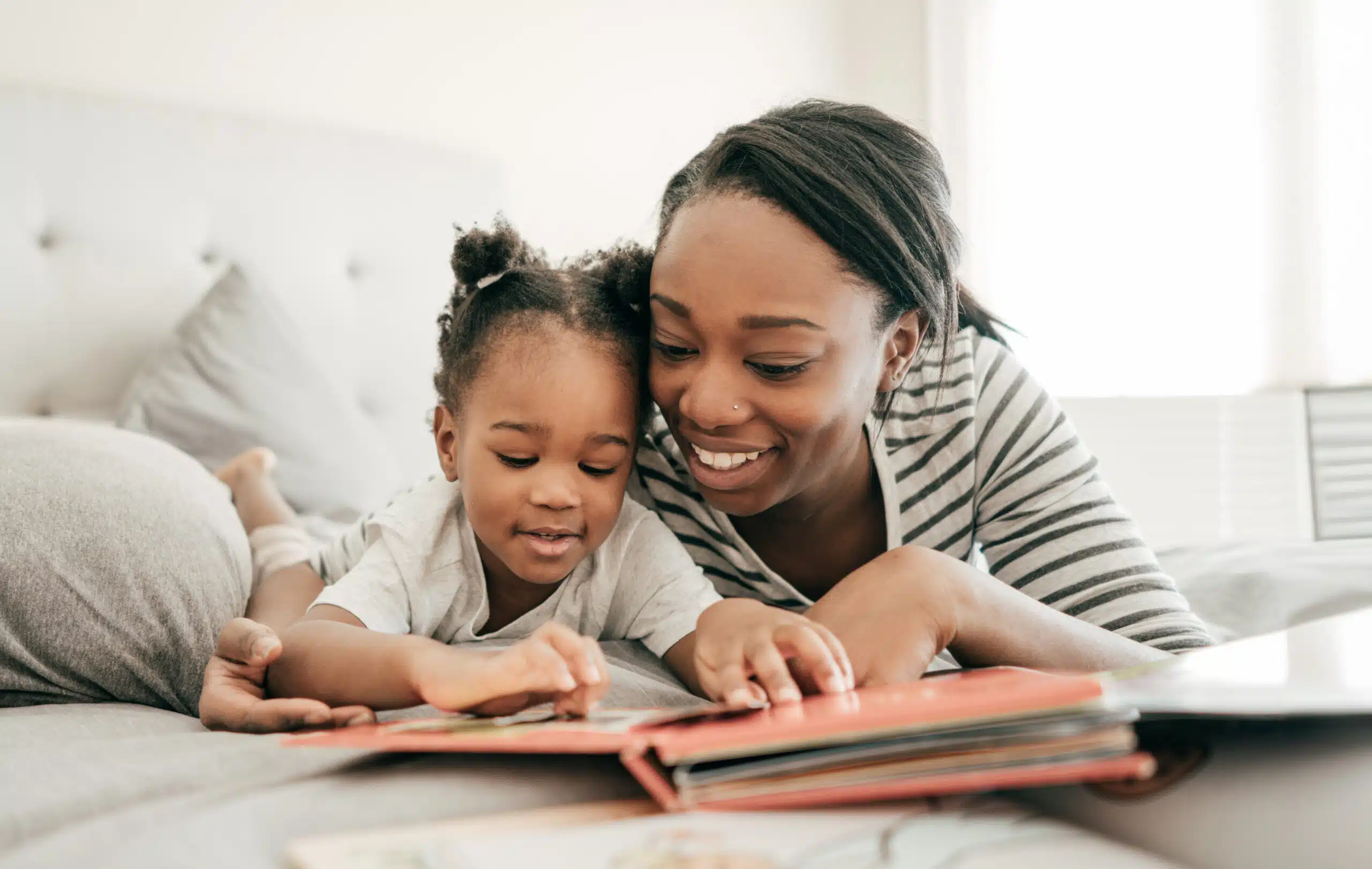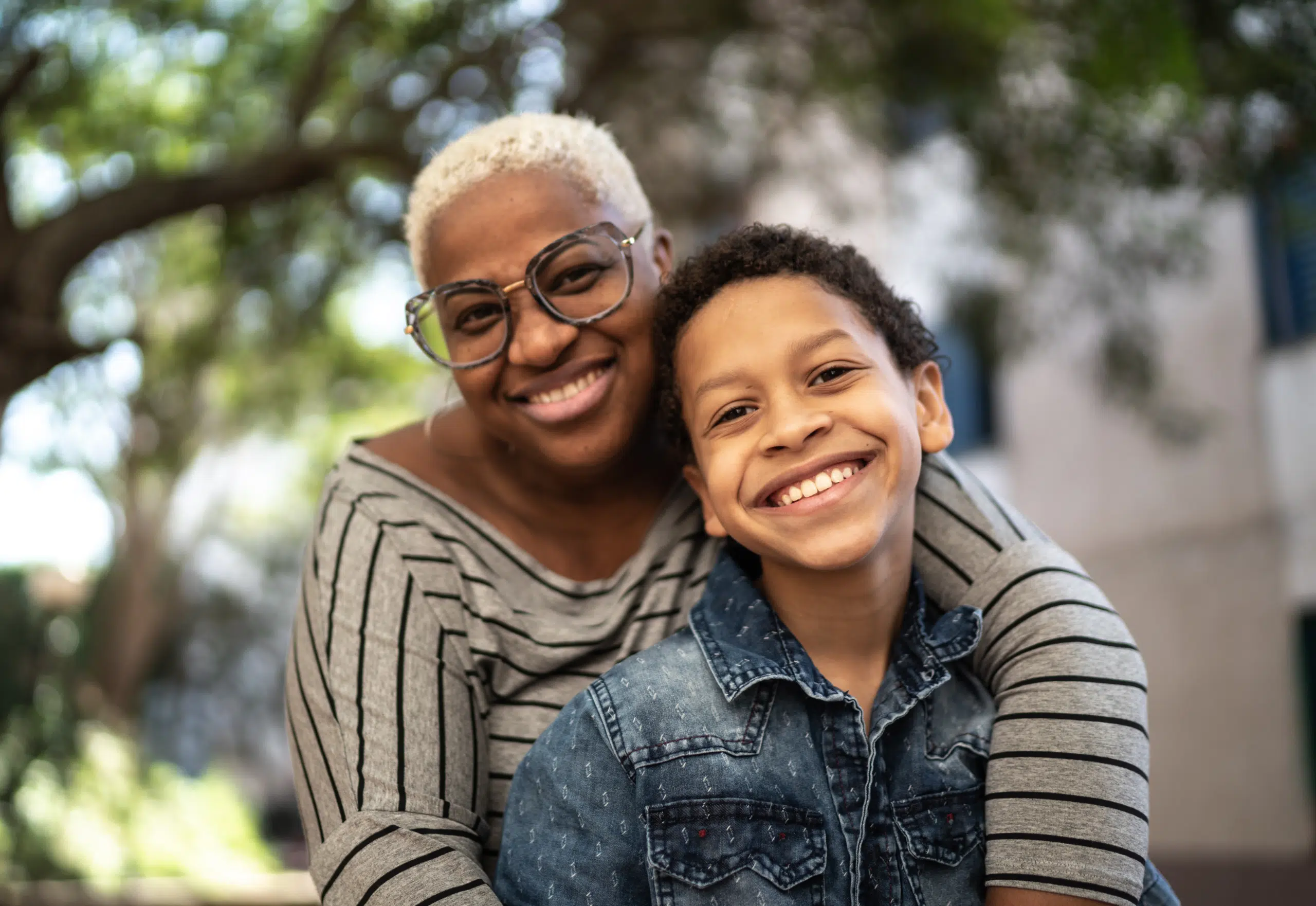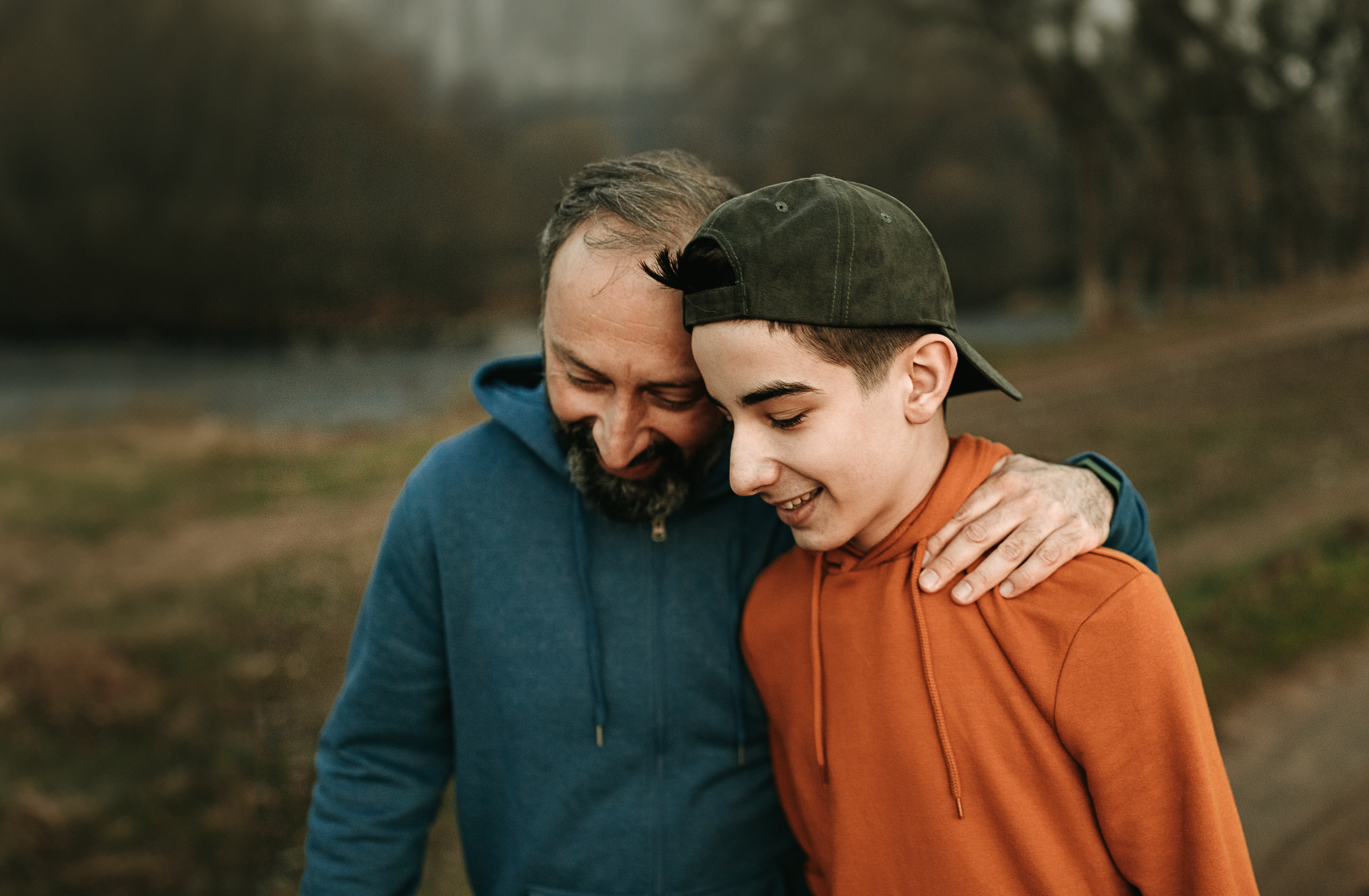Saprea > Online Prevention Resources > Educate > Connect to Prevent
With Connect to Prevent, you can help reduce the risk of sexual abuse by having continuous, open conversations with your child, starting when they’re an infant. Not sure where to start or what to say? Saprea has put together a series of conversation guides to help you identify what topics to discuss with your child, and at what age.
01
TEACH THEM THE NAMES OF THEIR BODY PARTS
Using appropriate names can help children be comfortable in their own bodies. As you’re changing your infant’s diaper, take the opportunity to tell them the names of their body parts. It should be no different than teaching them the names of their eyes, fingers, arms, etc.
02
DON’T MAKE THEM FEEL ASHAMED WHEN THEY TOUCH THEIR GENITALS
Remain neutral. Don’t encourage or discourage the touching. It is a normal part of development at this age; they are discovering their body and, to them, their genitals are just another part of their body like an arm or leg.
03
AFFIRM THEIR ENJOYMENT OF NON-SEXUAL TOUCH
Cuddling, hugs, fist-bumps, etc., can be good. Let your infant know that you enjoy these as well and that it’s good to enjoy them. You can also give them the ability to say whether or not they want to be hugged.
04
BEGIN TEACHING THEM ABOUT CONSENT
It’s never too early to start teaching your child about the importance of consent. Don’t force them to show affection and let them know when someone else tells them no, it’s okay. They can learn to give and get consent, even before they can talk.
01
DISCUSS HOW SOME THINGS ARE PRIVATE
Now is the time to start teaching your child about privacy. They need to know that nudity and touching their genitals are not appropriate in public. You can bring up privacy when they’re bathing or changing, explaining to them that some things should happen only in the bathroom (like washing their private parts) or in private (like changing their clothes or touching their genitals).
02
TEACH THEM THE NAMES OF THEIR BODY PARTS
At this age kids may have picked up euphemisms or slang terms for their body parts. Continue using and teaching them the appropriate names and discourage the use of slang terms. This will help them communicate more effectively if something is wrong or if someone has touched them inappropriately.
03
TELL THEM ABOUT SAFE VERSUS UNCOMFORTABLE TOUCH
Teach them that different types of touch may make them feel safe or uncomfortable. Uncomfortable touch is anything that makes them feel sad, upset, or awkward. Explain that sometimes even people they love may make them feel uncomfortable accidentally, but they should always let you know if someone has touched them in any way that made them feel uncomfortable.
04
INFORM THEM THAT NO ONE ELSE HAS RIGHTS TO THEIR BODY
Their body belongs to them and no one else. No one else has the right to touch their body without their consent. Tell them that even trusted grown-ups like doctors shouldn’t examine their body without someone they trust present.
05
EXPLAIN NO MEANS NO
Whether they say no or someone else tells them no, it needs to be respected. If your child is affectionate, explain that not everyone may want hugs or kisses. If your child doesn’t like to be touched by others, help them enforce that boundary.
01
EDUCATE THEM ABOUT REPRODUCTION
Teach them the basics. Teach appropriate content for their age and maturity level, but make sure they understand main concepts. Be sure to use appropriate terms when you teach them. As your child gets closer to age 8, you’ll want to teach them about intercourse. This may seem young, but you want to be the one to teach your child, and if you wait too much longer, statistics show they’ll hear about sex from other sources.
02
EXPLAIN DIFFERENT SEXUAL ORIENTATIONS
Kids at this age will realize that not all families are the same. Help your child understand the different relationships they may notice. Emphasize respect for all people.
03
REINFORCE THAT NO MEANS NO
Whether someone tells them no or they tell someone else no, it needs to be respected. Teach them to respect other people’s boundaries, and allow them to choose their own physical and emotional boundaries as well.
04
EXPLAIN THAT NO ONE ELSE HAS a RIGHT TO THEIR BODY
Their body belongs to them and no one else. No one else has the right to touch their body without their consent. Tell them that even trusted grown-ups like doctors shouldn’t examine their body without someone they trust present.
05
TALK ABOUT SEXUAL ABUSE
They need to know what sexual abuse is and what to do if it occurs or has occurred. This can be a difficult topic, but it’s important to address it honestly and openly in an age-appropriate way. Letting them know what is appropriate or inappropriate behaviors between them and older children and/or adults is important at this age.
01
SUPPORT A HEALTHY BODY IMAGE
At this age children are vulnerable to what makes them different from their peers, especially when it comes to physical appearance. Reinforce the importance of their whole person because they may place a significant amount of their self-esteem on body image.
02
DISCUSS DRUGS AND ALCOHOL
This may seem young, but many adolescents start drinking at age 12 or 13. You want to address this with your child before it becomes an issue.
03
TALK ABOUT PUBERTY
There are a lot of physical and psychological aspects of puberty that you will want to share with your child. Armed with the proper education, they’ll feel less overwhelmed by all the changes occurring within themselves and be able to make sense of a confusing time of life.
04
TALK ABOUT RELATIONSHIPS, CONSENT, AND RESPECT
Set expectations for them about what a healthy relationship should look like. Educate them about consent for themselves and others. Teach them the role respect should play in their relationships.
05
ADDRESS APPROPRIATE BOUNDARIES AND SEXUAL ABUSE
Let them know that they are allowed to set boundaries with the people in their lives. Talk about sexual abuse and what to do if it occurs or has occurred. This can be a difficult topic, but it’s important to address it openly at this age.
06
TEACH ASSERTIVE COMMUNICATION
You want to empower your child to stand up for themselves, especially when it comes to their physical and emotional well-being.
07
TALK ABOUT MEDIA
This may include discussions about how sexuality, body image, and gender roles are portrayed. It should include a discussion on media that portrays sex. It’s within this age group that most children are exposed to their first sexually explicit images.
01
SUPPORT A HEALTHY BODY IMAGE
Reinforce your child’s self-esteem. Compliment their whole self. Teens often question their own appearance, intelligence, and talents at this stage. They need frequent reminders from you that you think they’re amazing.
02
DISCUSS DRUGS AND ALCOHOL
Peers are extremely influential at this age. If your teen hasn’t been taught about drug and alcohol use, they may not be equipped to make the right choice when a situation arises. Also help them understand the connection between substance use and risky sexual behaviors.
03
TALK ABOUT PUBERTY
As they’re changing and experiencing puberty, make sure they know what’s going on with their bodies. Teens may not ask questions, so you might need to bring it up with them.
04
TALK ABOUT RELATIONSHIPS, CONSENT, AND RESPECT
Model for them what a healthy relationship looks like. Educate them about consent – for themselves and others. Teach them the role respect should play in their relationships.
05
ADDRESS APPROPRIATE BOUNDARIES AND SEXUAL ABUSE
Empower them to set boundaries with the people in their lives. Talk openly about sexual abuse and what they should do if it occurs or has occurred.
06
REINFORCE FAMILY VALUES
Every family has a value system. Younger teens often push against these values. Reminding them of what your values are and why you believe they are important is essential to open communication. With that said, make it safe for them to communicate with you if they choose to go against your values.
07
TALK ABOUT MEDIA
Have discussions about how sexuality, body image, and gender roles are portrayed. Include a discussion of media that portrays sex and the dangers that can come from viewing women, men, sex, and relationships in violent, demeaning, or non-consensual ways.
08
DISCUSS SEXUAL HEALTH AND INTERCOURSE
This can be difficult to talk about, but it’s imperative that you educate your teen about sex and contraception. A number of teens will have sex for the first time at this age, and it’s important that they know the dangers of unprotected sex, precautions they should take in relationships, and the pros and cons of delaying sex.
01
SUPPORT A HEALTHY BODY IMAGE
Reinforce your child’s self-esteem. Compliment their whole self. Their appearance, intelligence, and talents are all tenuous for them right now. As they are looking more toward the future, they need frequent reminders from you about how amazing you think they are.
02
DISCUSS DRUGS AND ALCOHOL
Peers are extremely influential at this age. If your teen hasn’t been taught about drug and alcohol use, they may not be equipped to make the right choice when a situation arises. Also help them understand the connection between substance use and risky sexual behaviors.
03
DISCUSS SEXUAL HEALTH AND INTERCOURSE
Have open discussions with your teen about contraception and your values about intercourse. Be sure they understand the full implications of making sexual decisions at this age, the danger of unprotected sex, and the precautions to take in relationships if they choose to be sexually active.
04
TALK ABOUT RELATIONSHIPS, CONSENT, AND RESPECT
Model for them what a healthy relationship looks like. Educate them about consent – for themselves and others. Teach them the role respect should play in their relationships.
05
DISCUSS DATING, APPROPRIATE BOUNDARIES, AND SEXUAL ASSAULT
Empower them to set boundaries with the people in their lives. Talk openly about dating and relationships, especially as they transition into adulthood. Make sure they know the risk of sexual assault, especially in their freshman year of college. Help them know how to reduce the risk, how to report, and what to do if they learn about a sexual assault.
06
TALK ABOUT MEDIA
Have discussions about how sexuality, body image, and gender roles are portrayed. Include a discussion of media that portrays sex and the dangers that can come from viewing women, men, sex, and relationships in violent, demeaning, or non-consensual ways.











